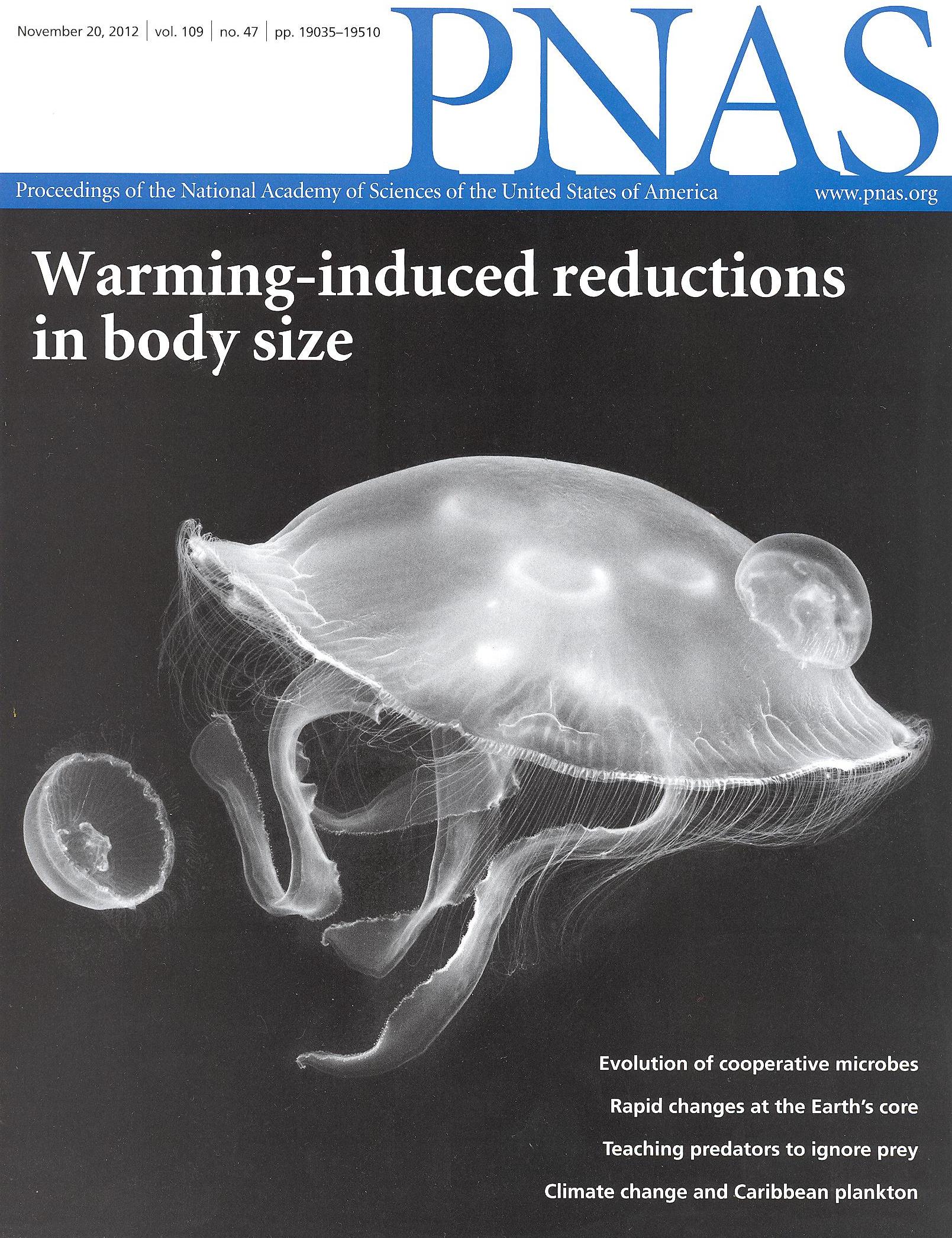Research

Adaptation to Temperature
a) Temperature Effects on Body Size - The Temperature-Size Rule
99.9% of species rely on external sources for their body heat: these are ectotherms.
Body size and temperature have major impacts on organisms in nature.
The “Temperature-Size Rule” (TSR) (Atkinson 1994) is an inverse relationship between rearing temperature and final size in ectotherms. Understanding it remains a major challenge.
We have performed empirical tests, meta-analyses and developed new theory.
We have shown that warming causes greater size reduction in aquatic than terrestrial species, and that responses observed in controlled experiments are mirrored in the field across latitudes and seasons.
Experimental organisms: fish, Daphnia, insects, Bryozoa and protists.
Collaborator: Dr A. Hirst, Queen Mary Univ of London;
Funding: NERC
See: Atkinson 1994, Atkinson et al. 2003, Atkinson et al. 2006, Forster et al. 2012, Horne et al. 2015.
b) Limits to Adaptation
We are investigating how rapidly species can evolve, what the limits are to evolution, and how evolution of one species will affect the rest of the ecosystem with which it interacts.
These questions are being answered using large-scale freshwater mesocosm experiments that focus on the evolutionary response of the water flea Daphnia magna to an increased frequency of heat waves.
The work aims to advance understanding of how genetic diversity, plasticity and epigenetics contribute and combine to allow populations to adapt to environmental change and how this affects biodiversity and functioning of shallow freshwater ecosystems.
Collaborators: Dr Stew Plaistow, Prof Steve Paterson (Univ Liverpool); Prof Luc De Meester (KU Leuven); Dr Heidrun Feuchtmayr (Centre for Ecology & Hydrology, Lancaster)
Funding: NERC Highlight Grant, 2016-2020
See Geerts et al. 2015

New Metabolic Scaling Theory for Predicting Biologically-driven Ecological Rates
Our quantification of a new metabolic scaling theory (MST) improves predictions of ecological influences on metabolically driven rates and scaling relationships.
Collaborators: Prof. D.S. Glazier, Juniata College USA; Dr A.G. Hirst, Queen Mary University of London, Dr A.J. Kerkhoff, Kenyon College, USA; Dr J.G. Okie, Arizona State University, USA
Funding: NCEAS (NSF, State of California, Univ. of California); Leverhulme Trust.
See: Killen et al. 2010, Hirst et al. 2014, Glazier et al. 2015.
Ecosystem and Conservation Impacts of Climate and Multiple Stressors
a) Climate and Eutrophication Impacts on Ecosystem Functioning
Our large-scale ecosystem manipulations showed 4 °C warming plus nutrient loading had major impacts on Daphnia evolution and on ecosystem metabolic balance and community composition.
See: Moran et al. 2010, Feuchtmayr et al. 2009, Geerts et al. 2015.
Funding: European Union
b) Climate Impacts on Disease Dynamics.
We predict that differences in thermal sensitivity of rate of contact between pathogen and hosts will explain much variation in climate effects on epidemiology of diseases of ectotherms.
Thermal sensitivities of rates affecting parasite transmission have now been characterized for beetle: parasite system, for incorporation into our epidemiological model.
Collaborators: Prof. G. Hurst, Dr J. Ryder (postdoc); Prof. M. Boots, Univ. of California, Berkeley; Dr R. Knell, Queen Mary Univ of London.
Funding: NERC.
Research grants
Case Studentship Laura lee
APPLIED BIOMATHEMATICS (USA)
October 2016 - September 2020
Climate-related size shifts in aquatic species: mechanism, prediction and mitigation
NATURAL ENVIRONMENT RESEARCH COUNCIL
May 2017 - January 2021
Limits to Adaptation
NATURAL ENVIRONMENT RESEARCH COUNCIL
May 2016 - September 2021
Temperature impacts on parasite epidemiology - case study of a contact-transmitted insect parasite
NATURAL ENVIRONMENT RESEARCH COUNCIL
April 2009 - August 2012
Size and wing loading in flying insects: effects of warming versus other environmental influences.
BRITISH ECOLOGICAL SOCIETY (UK)
August 2004 - October 2004
Whole life-cycle responses to changing temperature and oxygen levels: experiments using a bryozoan model system.
NATURAL ENVIRONMENT RESEARCH COUNCIL
May 1998 - December 2001
The proposed work analyses databases that combine already published datasets with ones that I have been constructing from literature sources over the last 4 years
LEVERHULME TRUST (UK)
November 2008 - August 2009
Integrated project to evaluate the impacts of global change on European freshwater ecosystems (EURO-LIMPACS).
EUROPEAN COMMISSION
February 2004 - January 2009
Size responses of protists to temperature: towards predicting impacts of warming on production in freshwater and marine environments.
BRITISH ECOLOGICAL SOCIETY (UK)
June 2001 - August 2001
Environmental warming and the functioning of freshwater ecosystems.
NATURAL ENVIRONMENT RESEARCH COUNCIL
March 1998 - February 2001